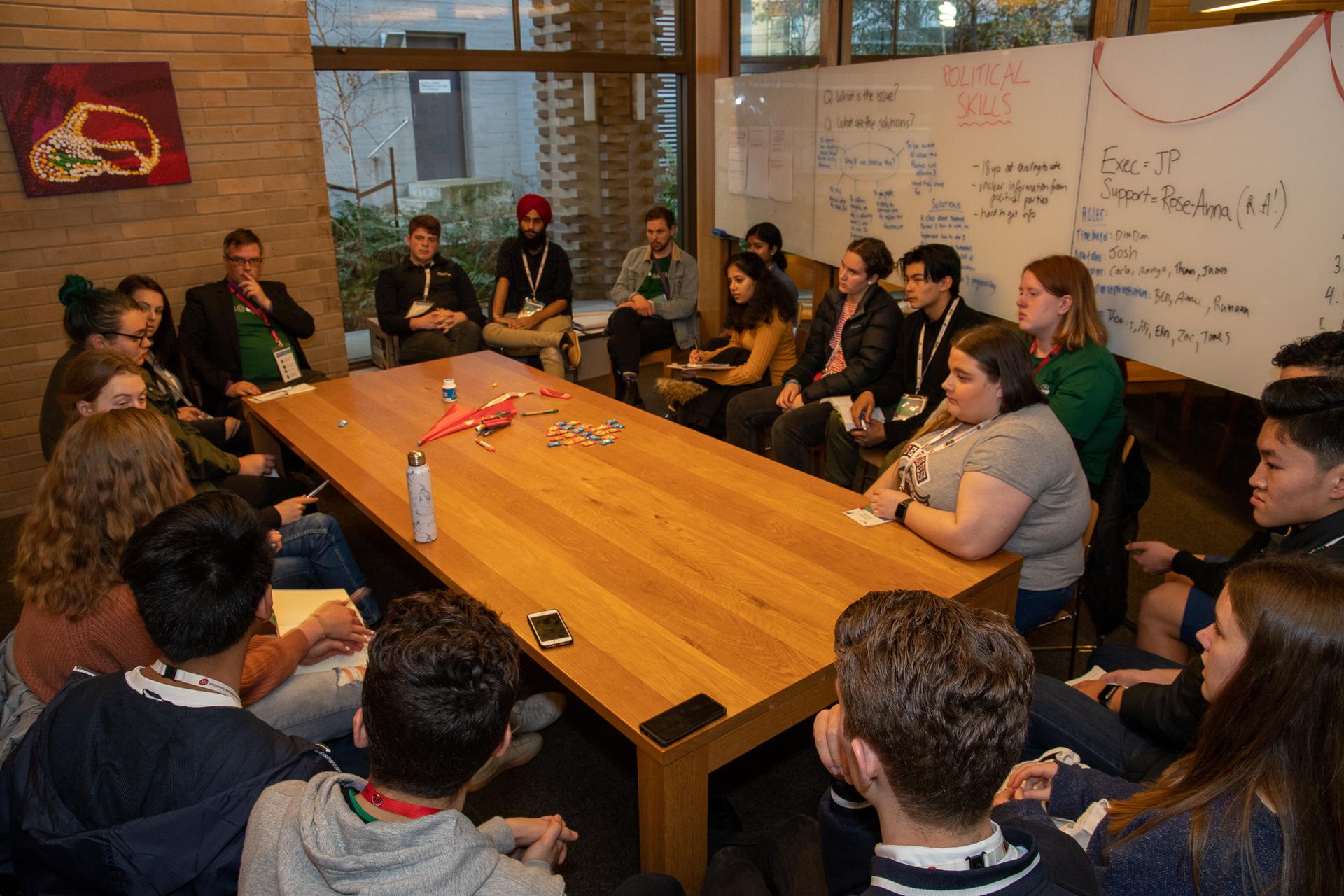Civics & citizenship education
Civics and citizenship education helps people understand the political and legal systems they exist in and what it means to be an engaged citizen.
At VicSRC Congress 2019, students voted Politics 101 as one of the top priorities for VicSRC to work on. Students felt that they were not learning the things they needed to know to become active and informed citizens.
We believe that all young people should be equipped with knowledge about our political system in order to make more informed decisions about their future, and that all schools should provide a consistent teaching of civics and citizenship education.
The Minister for Education listened to students at Congress and shortly after, announced funding to support civics and citizenship education. This included funding for VicSRC to create a suite of student-led civics and citizenship resources in partnership with the Victorian Curriculum and Assessment Authority (VCAA). These resources were created by students, for students and focus on five topics chosen by students:
Policy
Voting
Citizenship
Media
Active civic participation
These resources are mapped to the Victorian Curriculum F-10 and include videos, reading, and activities for students to take action in their schools and local communities.
VicSRC continues to promote and encourage the use of these resources in schools, and to make sure civics and citizenship remains a priority for improvement in Victorian schools.
What does this mean for students?
Take control of your civics and citizenship education! Share the resources with your teachers to include in their lesson planning or use them yourself to get informed.
Start a review of one of your school’s policies in Shaping Policy Together
Make a plan to solve an issue at your school or in your community in Solving Issues
Run an election in Who gets to vote?
